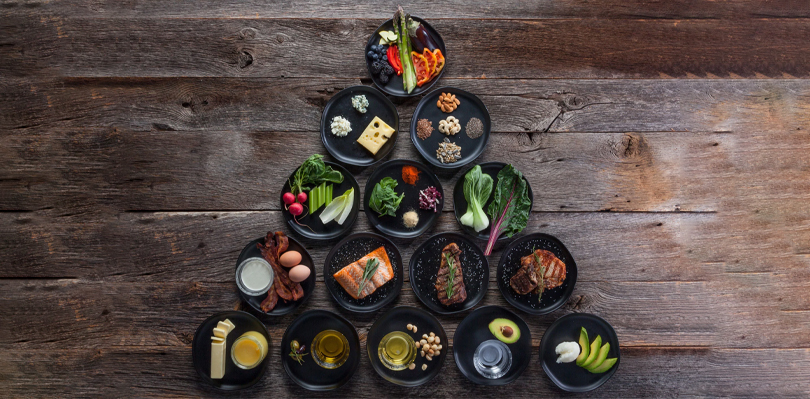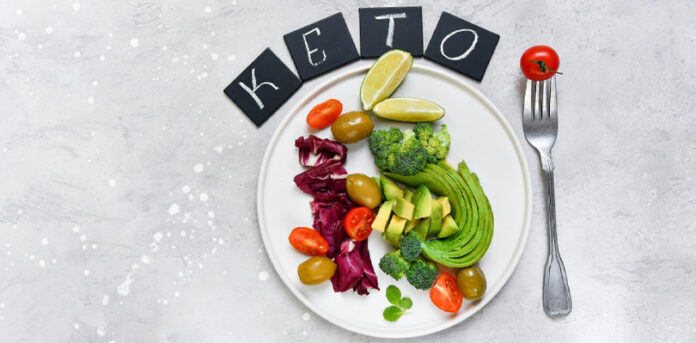Are you looking to improve your health and lose weight, but don’t know where to start? The keto diet, also known as the ketogenic diet, is a popular low-carb, high-fat diet that has been shown to have numerous health benefits. Such as weight loss, improved blood sugar control, and increased energy levels.
Starting a new diet can be overwhelming, especially when you’re new to the world of keto. That’s why we’ve put together this beginner’s guide to the ketogenic diet to help you understand what the diet is.
What Is Keto Diet?
The keto diet is a high-fat, low-carbohydrate diet that is designed to put the body into a metabolic state called ketosis. When you follow a ketogenic diet, you reduce your carbohydrate intake and increase your fat intake. This forces your body to burn fat for energy instead of carbohydrates.
The typical macronutrient breakdown for a ketogenic diet is approximately 70-75% of calories from fat, 20-25% of calories from protein, and 5-10% of calories from carbohydrates. By limiting carbohydrates, the body is forced to burn stored fat for energy, which can lead to weight loss.
Types Of Keto Diet

There are several types of the ketogenic diet, each with different macronutrient ratios and approaches. Here are some of the most common types of keto diet:
- Standard Ketogenic Diet (SKD):
This is the most common type of ketogenic diet, with a macronutrient ratio of around 75% fat, 20% protein, and 5% carbohydrates.
- Cyclical Ketogenic Diet (CKD):
This diet involves periods of higher-carb refeeds followed by several days of strict keto. This approach is typically used by athletes or bodybuilders looking to build muscle while still following a keto diet.
- Targeted Ketogenic Diet (TKD):
This approach involves consuming small amounts of carbs around workout times to provide extra energy for exercise performance, while still maintaining ketosis.
- High-Protein Ketogenic Diet
Similar to the SKD, but with a higher protein intake of around 30% of calories. This approach is often used by those who are highly active or looking to build muscle.
- Restricted Ketogenic Diet:
This is a more extreme version of the SKD, with even fewer carbohydrates (usually less than 20 grams per day) and a higher fat intake.
Note: It’s important to note that each individual’s nutritional needs may vary, and the type of keto diet that works best for one person may not work for another.
Various Benefits Of The Keto Diet You Should Know
The ketogenic diet has been associated with several potential health benefits. Here are some of the most commonly reported benefits:
- Weight Loss: The ketogenic diet can lead to weight loss due to the reduction of carbohydrates and the increase in fat and protein intake. This can lead to a reduction in overall calorie intake and a shift towards using fat for energy.
- Improved Blood Sugar Control: The keto diet has been shown to improve blood sugar control in people with type 2 diabetes, by reducing the need for insulin and lowering blood sugar levels.
- Reduced Inflammation: The keto diet has been shown to have anti-inflammatory effects, which may benefit those with conditions related to chronic inflammation.
- Improved Brain Function: The keto diet may have neuroprotective effects, and has been studied as a potential treatment for conditions such as epilepsy, Alzheimer’s disease, and Parkinson’s disease.
- Reduced Risk of Heart Disease: The keto diet may help to improve cholesterol levels and reduce the risk of heart disease, by reducing triglycerides and increasing levels of “good” HDL cholesterol.
Note: It’s important to note that more research is needed to fully understand the potential benefits and risks of the ketogenic diet and that the diet may not be appropriate for everyone. It’s important to consult with a healthcare professional or registered dietitian before starting any new diet.
Which Foods You Should Avoid?
The ketogenic diet involves significantly reducing your carbohydrate intake while increasing your intake of healthy fats and moderate amounts of protein. To stay in a state of ketosis, it’s important to avoid certain foods that are high in carbohydrates. Here are some foods to avoid on a keto diet:
- Sugary Foods: This includes candy, baked goods, and other sweets that are high in sugar.
- Grains: Wheat, rice, oats, and other grains are high in carbohydrates and should be avoided on a keto diet.
- Starchy Vegetables: Potatoes, corn, peas, and other starchy vegetables are also high in carbohydrates and should be limited.
- Fruits: While fruits are generally healthy, they are also high in sugar and should be consumed in moderation. Stick to low-sugar options like berries and avocados.
- Legumes: Beans, lentils, and other legumes are high in carbohydrates and should be avoided on a keto diet.
- Processed Foods: Processed foods like chips, crackers, and other snacks are often high in carbohydrates and should be avoided.
- Sugary Drinks: Soda, juice and other sugary drinks should be avoided on a keto diet. Stick to water, unsweetened tea, and black coffee.
Note: It’s important to note that everyone’s nutritional needs may vary. Some people may need to avoid or limit other foods based on their individual goals.
Which Foods You Should Eat?
Here are some foods that are recommended on a keto diet:
- Healthy Fats: Avocado, olive oil, coconut oil, nuts, seeds, and fatty fish like salmon are all good sources of healthy fats.
- Low-Carb Vegetables: Non-starchy vegetables like leafy greens, broccoli, cauliflower, zucchini, and peppers.
- Meat and Poultry: Beef, chicken, turkey, pork, and other meats are all good sources of protein for a keto diet.
- Eggs: Eggs are a great source of protein and healthy fats and are ideal for a keto diet.
- Dairy: High-fat dairy products like cheese, cream, and butter can be included.
- Berries: Low-sugar fruits like raspberries, blackberries, and strawberries can be included in small amounts on a keto diet.
- Nuts and Seeds: Almonds, macadamia nuts, chia seeds, and flax seeds are all good sources of healthy fats.
Are There Any Side Effects?
Here are the potential side effects of the ketogenic diet you should know before starting your journey:
- Keto flu (temporary flu-like symptoms)
- Increased urination and thirst
- Constipation
- Bad breath (halitosis)
- Leg cramps
- Reduced physical performance
- Changes in the menstrual cycle (for women)
- Potential increase in cholesterol levels (although this effect is not seen in everyone)
Read More: Unexpected Side Effects Of The Keto Diet
FAQs
Is the keto diet safe for everyone to try?
While the ketogenic diet is generally considered safe for most people, it’s important to talk to your healthcare provider or a registered dietitian before starting the diet, especially if you have a medical condition or are taking medication. The diet may not be appropriate for individuals with certain health conditions, such as pancreatitis, liver disease, or gallbladder disease.
Will I lose weight on a keto diet?
Many people experience weight loss on the ketogenic diet, as the low-carb, high-fat diet can help reduce overall calorie intake and increase fat burning. However, weight loss may not be the same for everyone, and results may vary based on individual factors like age, sex, and activity level.
Can I eat carbs on a keto diet?
While the keto diet is very low in carbohydrates, some people may be able to include small amounts of carbohydrates in their diet and still maintain a state of ketosis. However, the amount and type of carbohydrates that can be consumed will vary based on individual factors like activity level and metabolic rate. It’s important to monitor your carbohydrate intake and adjust as needed to stay in a state of ketosis.

